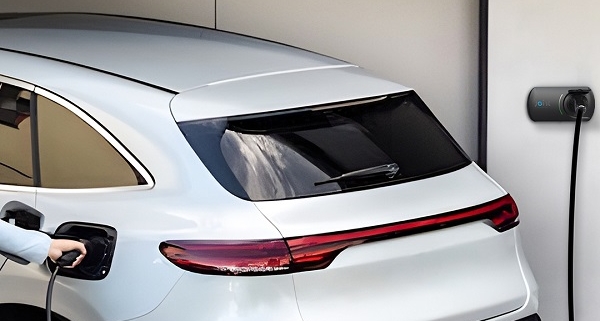As people become more conscious of climate change and environmental sustainability, eco-friendly devices are increasingly sought-after. Electric vehicles that emit zero emissions while driving have become an integral part of transportation; as their numbers increase, so does demand for charging facilities, thus making finding a suitable home EV charging solution all the more important for people who drive electric cars daily.
What Is a Home EV Charger?
Home EV chargers play an essential part in providing convenience and sustainability when it comes to electric vehicle charging. Home chargers allow users to conveniently recharge in their garages or yards at home without depending on public charging stations; typically they come in two primary forms – Level 1 and 2.
Level 1 Electric Vehicle Chargers
Level 1 EV chargers are the simplest charging devices on the market. They use standard 120-volt AC power sources plugged directly into household outlets for everyday charging needs and usually offer slow charging speeds of 3-5 miles per hour for lower-powered electric vehicles.
Level 2 Charger for Electric Vehicles.
Level 2 chargers are home charging devices equipped with 240-volt AC power and feature higher charging powers and faster charging speeds than level 1 EV chargers, making them more popular among home charging devices. Their charging speeds typically range between 15-25 miles per hour – ideal for daily driving needs as well as those who require faster charges.
Some home EV charger vendors provide Level 2 chargers which, unlike Level 1 chargers, support smart charging technology such as smart charging and remote monitoring with smart apps for added convenience and more flexible charging management. These units further increase user convenience and enable more flexible management of home charging processes.
Should I purchase a Level 2 home EV charger?
A home charging device can be a Level 1 socket or a specially installed Level 2 charging post. Users usually choose the charger for their EV model and charging needs in the home environment.
A Level 1 charger is affordable for EV owners who drive shorter distances each day and have fewer urgent charging needs. It uses a standard household outlet, requires no additional installation, and costs less. And for those who need faster charging speeds and drive longer distances each day, the Level 2 charger offers a more convenient option. Despite the need for professional installation and additional cost, the Level 2 home EV charger provides users with the flexibility and intelligence to meet the various charging needs of their vehicle owners.
How to Install a Home Electric Vehicle Charger
Installing a home electric vehicle charger is relatively easy, but certain steps and safety requirements remain.
Level 1 EV Charger Installation Steps:
Installation of a Level 1 EV charger is very intuitive. Users plug the Level 1 charger into a home outlet and make sure the plug is securely connected. This simplicity makes the Level 1 charger an extremely convenient option that requires no additional specialized installation steps. However, users still need to ensure the outlet’s and power cord’s safety during use to ensure proper charging.
Steps for installing Level 2 EV chargers:
Installing a Level 2 EV charger may seem more complex than its Level 1 counterpart, yet it remains a manageable and intuitive process. First, users should select an ideal mounting location, usually a wall mount. A professional electrician then makes the required electrical connections to ensure safety and reliability, and the Level 2 charger also offers the option of a standalone bracket, allowing the user to position the charger to suit their individual needs. This mounting flexibility makes the Level 2 charger ideal for meeting users’ needs.
Home EV charger distributors often provide an installation service to ensure the unit is properly installed and connected. This professional installation service provides the user with peace of mind and convenience, ensuring the safe use of the charging equipment.
Smart Home EV Charging Solution
Intelligent home charging solutions provide a more convenient charging experience as technology advances. Remote monitoring systems, billing systems, and personalized user interfaces enable users to monitor charging progress in real time, make flexible payments, and customize the charging experience, increasing convenience and user satisfaction.
Smart charging systems typically support the OCPP1.6J protocol, enabling charging devices to more closely interact with the Smart APP and providing users with remote monitoring of charging processes, viewing history records, and starting/booking appointments through this innovative system. Users benefit from an improved charging experience, which improves efficiency and conserves energy usage.
Collaboration between providers of electric vehicle charging solutions and smart app developers has resulted in the upgrade of smart home charging solutions to meet the evolving needs of EV users.
Joint provides you with innovative home EV charging solutions
As a home EV charging manufacturer, Joint has introduced smart home EV chargers such as the Joint EVC38. The smart AC charger enables remote start, charging reservations, and data monitoring through a mobile app, TUYA, greatly improving charging flexibility and convenience. The Joint EVC38 has a smart charging feature that allows it to be used during off-peak power usage times to Save money by charging your electric vehicle during off-peak hours.
Home EV charging solutions offer EV users a more convenient and sustainable way to charge their vehicles while actively promoting clean energy and sustainability. By choosing the right charging equipment, charging energy, and intelligent systems, users can experience electric vehicles’ convenience and environmental friendliness.




Leave a Reply
Want to join the discussion?Feel free to contribute!